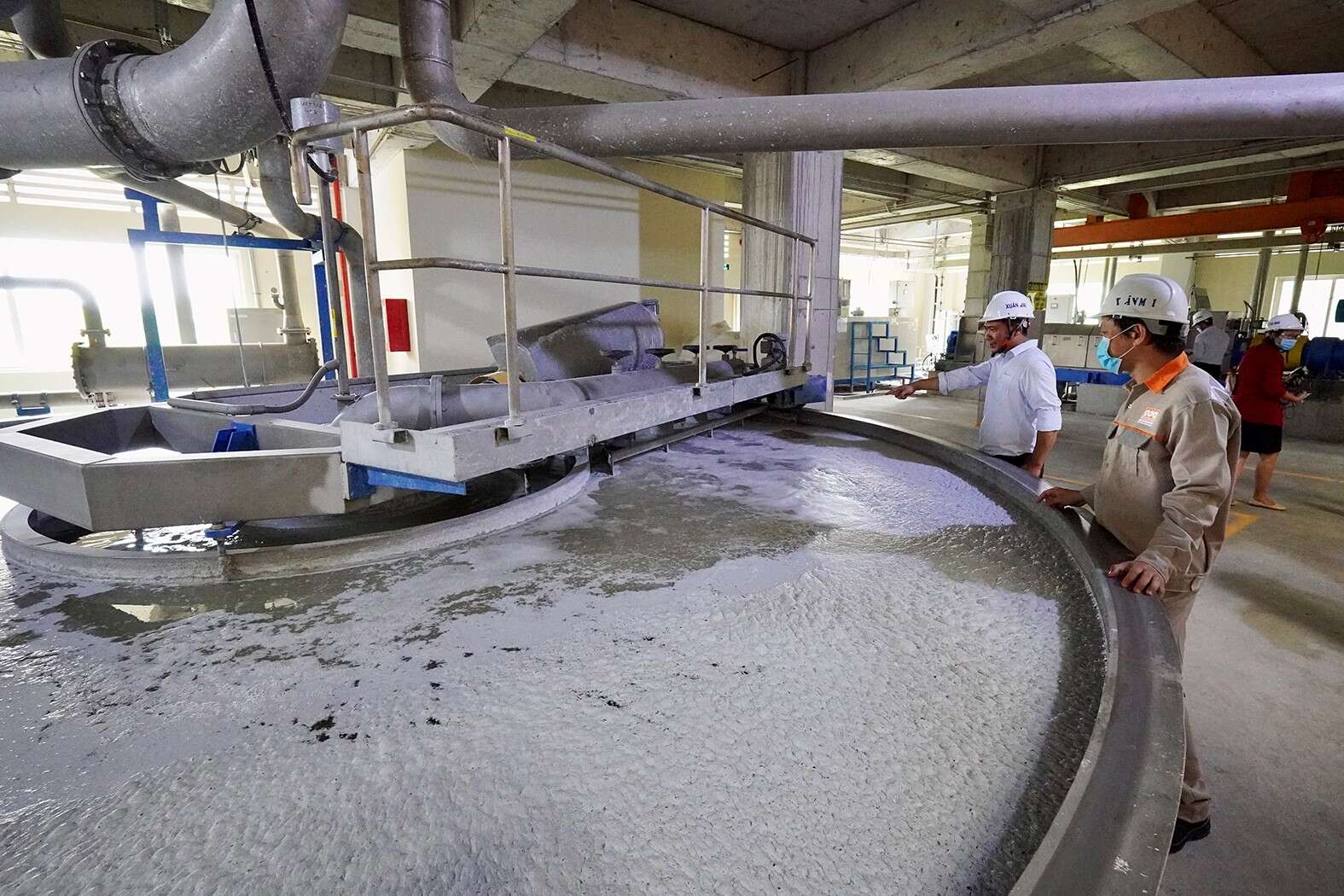Several Vietnamese businesses are intensifying efforts to export recycled products, which could become a sustainable solution for a circular economy if widely adopted.
Steps Towards a Circular Economy
According to Mr. Phan Tuan Hung, Director of the Legal Department at the Ministry of Natural Resources and Environment, the 2020 Environmental Protection Law outlines two key responsibilities: waste collection and treatment and the recycling of packaging and products by manufacturers and importers. Recycling waste is a crucial component in establishing a circular economy.
Recently, many companies have focused on promoting the export of recycled products. For example, Mr. Le Anh, Director of Sustainable Development at Duy Tan Plastic Recycling JSC, reported that since 2021, the company has been exporting recycled products to 12 countries, primarily the United States and the European Union. In 2023, they exported around 18,000 tons of products, and in the first half of this year alone, they exported about 12,000 tons, mainly PET (bottles for water and soft drinks) and HDPE (bottles for cosmetics).
Similarly, since 2017, Thanh Cong Textile - Investment - Trade JSC has invested heavily in developing recycled and eco-friendly products. Their recycled t-shirts have been exported to Japan, Korea, and Europe. The company uses materials like plastic bottle remnants and agricultural by-products like fruit peels and corn husks to create new clothing.
At the Lộc Nhân Coffee Recycling Co., Ltd.'s product showcase, there is a surprising variety of products recycled from coffee grounds, including deodorants for cars and offices, soaps, coffee tablets with custom designs for souvenirs, and burning tablets for restaurants and industrial use. These products have been sold domestically for over a year and have participated in various international exhibitions. Some foreign partners have expressed interest in exporting these products and transferring recycling technology.

A circular production chain of Vietnamese enterprises
Supporting Policies for Recycling Businesses
Recycling, as a global trend and a mandatory criterion, not only represents a significant opportunity for Viet Nam's recycling industry but also brings numerous benefits to the environment and society. By reducing the amount of waste sent to landfills and providing valuable raw materials for manufacturing, recycling plays a crucial role in environmental protection and resource conservation.
Mr. Tran Viet Anh, Chairman of the Viet Nam Recycling Association, noted that the recycling market in Viet Nam holds substantial potential due to the large volume of waste available for recycling from agricultural and industrial activities, especially from plastic. Daily household waste generation is estimated at 60,000 tons, with approximately 55% of its recyclable components.
However, Mr. Tran Viet Anh pointed out that the recycling market in Viet Nam has yet to develop as expected. The main reasons are inadequate technology and infrastructure, limited variety in utilizing waste materials for recycling, and the need for proper recycling industrial clusters or zones. Additionally, source separation of waste still needs to be standardized. Addressing these weaknesses could significantly boost the recycling market.
As for the support policies for recycling businesses in Viet Nam, Mr. Tran Thanh Nam, a representative of the Vietnam Environmental Protection Fund, provided detailed information. The fund offers low-interest loans at a fixed rate of 2.6% for environmental protection, clean energy production, and recycling projects. These loans, with a maximum term of 10 years, cover up to 80% of the total investment, with a maximum loan of 36.6 billion VND per project and no more than 73.2 billion VND per investor. The fund has already supported numerous projects in waste management, recycling, and reuse, demonstrating its commitment to the industry.